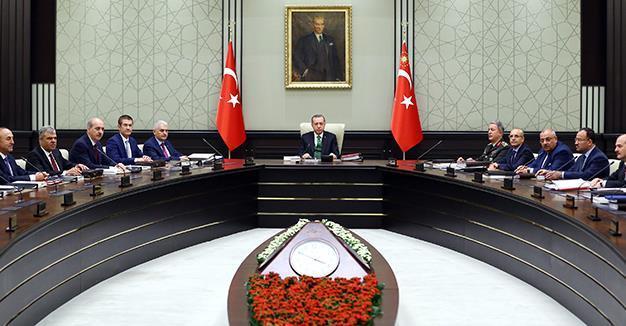Turkey to hold key security meet on measures against Iraqi Kurdish independence
ANKARA
 Turkey’s top security board and the cabinet will convene on Sept. 22 in a bid to announce measures to be taken in the event the Iraqi Kurdish Regional Government (KRG) goes forward with holding the independence referendum on Sept. 25, despite strong opposition from Baghdad and regional countries.
Turkey’s top security board and the cabinet will convene on Sept. 22 in a bid to announce measures to be taken in the event the Iraqi Kurdish Regional Government (KRG) goes forward with holding the independence referendum on Sept. 25, despite strong opposition from Baghdad and regional countries.The National Security Council (MGK) will meet under the leadership of President Recep Tayyip Erdoğan immediately after his return from the United States where he attended United Nations General-Assembly meetings and held bilateral meetings with world leaders, including U.S. President Donald Trump.
The MGK was supposed to meet on Sept. 27 but has been brought forward to Sept. 22 in order to allow Turkey’s top civilian and military officials to ponder over actions to be taken against the KRG’s referendum.
In a statement in New York, Erdoğan said the sanctions Turkey will impose will not be “ordinary” but did not give details. He also informed that the cabinet will convene on the same day in order to register advisory decisions of the MGK as the official rules.
Along with Erdoğan, Prime Minister Binali Yıldırım, deputy prime ministers, defense and foreign ministers as well as Chief of General Staff Gen. Hulusi Akar, all force commanders and National Intelligence Organization (MİT) head Hakan Fidan will join the MGK meeting.
Turkey and the KRG have developed a bilateral political, economic and energy relationship in the last 10 years after the latter has been designated as an autonomous region under the new Iraqi constitution. The trade volume between the two has exceeded $8 billion as Turkey intensified its oil trade with the autonomous region despite Baghdad’s opposition. The Habur border gate on the Turkey-Iraq line is one of the busiest border gates in the region.
In the meantime, Turkish private companies have nearly dominated the KRG economy in the last 10 years making an enormous amount of investment to northern Iraq.
The Turkish ministries have been working on measures Turkey can take and their political and economic implications. Closing the Habur border gate, Turkish airspace to flights in Arbil, weakening political dialogue and other measures are often cited in the Turkish capital.
















